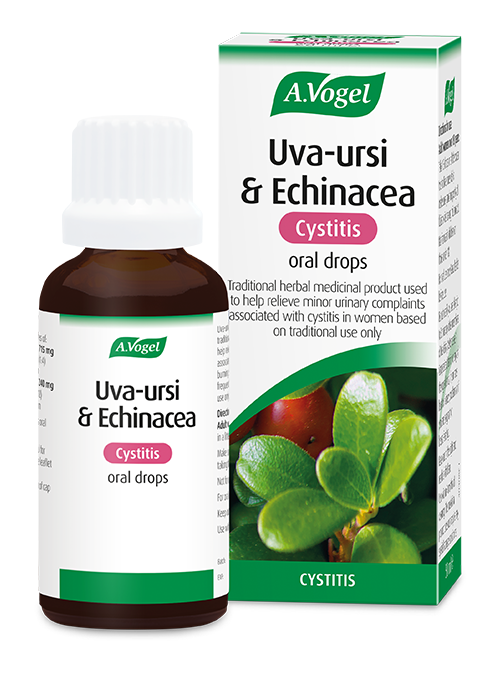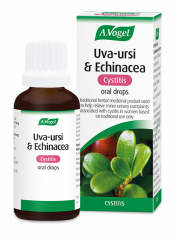1 – You’re attempting to stay warm
Many of us like winter for this very reason – when it’s cold outside you can look forward to curling up inside with the heating or fire on, and wrap up tight in your cosiest clothes or covers – there’s nothing better! However, could these very habits be making your cystitis worse?
Central heating systems are notorious for drying us out, quite literally, and this doesn’t do our skin, eyes and mucous membranes any favours. Mucous membranes line the length of our urinary tract too and if these become damaged (which is much more likely if they’re drier) then infection can easily set in. In combination with this, as you wrap up warm and layer up, this can offer the very conditions that bacteria love and are able to flourish in. Warm, moist conditions are just ideal, so try to ensure that your layers remain breathable, especially when it comes to underwear and cosy jammies or loungewear – more synthetic materials can put you more at risk.
2 - Have your kidneys caught a cold?
You might have heard the phrase, ‘you’re kidneys will catch a cold’ perhaps coming from an older relative in response to wearing too little clothes! But it does seem that there is some truth in this.
See, the colder weather is thought to cause the nerve endings in and around the bladder and kidneys to become more sensitized which can cause you to feel the need to go to the loo more often, and potentially give rise to more inflammation in the area. This means that both the bladder and kidneys may be more vulnerable to infection under colder conditions, and UTIs can easily progress into more serious kidney infections if we’re not careful.
3 - The cold weather brings out the bugs too

It’s commonly recognised that the bugs that give rise to cold and flu infections are more prevalent during the winter, but it’s these very bugs which can also put us more at risk of contracting a UTI or cystitis!
Cystitis is caused by a strain of E.coli, and although this isn’t generally the same type that can give rise to tummy upset, this different strain naturally resides in our system and can pose an issue in the right conditions. If these guys get the opportunity to thrive they’ll do so, so if you’re feeling run down already, or have had a recent dose of antibiotics, they can grasp the opportunity and before we know it, a niggle has developed into a full blown cystitis infection.
To help protect yourself from cystitis-causing bugs, take Uva Ursi & Echinacea drops at the first sign of infection. The Uva-ursi component helps to soothe the affected area and whilst combined with the Echinacea content, you can help to support your immune system.
Uva-ursi & Echinacea Cystitis Oral Drops. Cystitis Treatment for Women
£. () Get it tomorrow, 14th January.
4 - Plus your immune system is under more pressure anyway 
With the rise in bugs going around at this time of year, your immune system may be a little more under pressure already; immune cells are on high alert patrolling your meticulously system for any potential invaders! However, there are also a few factors that can make their job even tougher still. We’ll go on to discuss dietary factors next, which is a biggie but firstly, being more sedentary is an interesting consideration. With the cold and miserable weather more of us are tempted to do less and stay indoors which means your heart rate drops, your circulation will become more sluggish and your immune cells are less likely to be patrolling so efficiently – cue the onslaught of bugs!
Next, during winter, as a result of being outdoors less and with the lack of warm sunlight, our vitamin D levels are at risk of dropping off. Vitamin D is not only important for supporting your mood, but it’s also a key nutrient for supporting our immune functions. Taking a supplement during the winter months is a necessity that we shouldn’t ignore, so why not stock up on Balance Mineral Drink to ensure you get your winter fix?
5 - Your winter diet may put you at risk
It’s inevitable that during the winter, especially in the lead up to the festivities, that people will be more tempted than ever by warming, winter treats. Sugary sweet treats, stodgy baked goods, warming beverages and a little tipple here and there are common features on menus at this time of year and unfortunately it’s often a recipe for disaster - sugar, pro-inflammatory fats, caffeine or alcohol are common culprits for upsetting your digestive system and urinary tract and won’t help to maintain an infection-free track record.
Whilst treats now and again are inevitable, it’s important to be more aware of employing more helpful habits as much as possible, to help protect yourself as much as possible throughout this time. Aim to drink plenty water and including vitamin C rich fruit and vegetables can really help to support your recovery after an infection.
6 - And you may not be drinking enough

Unfortunately come winter time the focus on hydration often goes out the window. Although you perhaps don’t need to be drinking quite as much as during the summer months when you may be more active and sweating more, even when the conditions aren’t quite so warm, it’s still crucial to stay properly hydrated. Ideally you should be aiming to drink a minimum 1.5l of water, regardless of the time of year.
Then, on that note, when it comes to managing your water intake, did you know that teas and coffees don’t count? If you’re drinking caffeine heavy drinks in an attempt to warm you up, this could be having an adverse effect on the health of your urinary tract. Why not try warm water with a slice of lemon instead? It’s a much gentler option and I can assure you, just as comforting!
7 - Toilet habits can change with the seasons
Come winter time, toilet habits may change notably and this can have a detrimental effect on the likelihood of contracting infections.
As above, people often get into the habit of drinking less during the winter months (or drinking more of the wrong type of thing), but also as a result of the cold, or because people are generally wearing more layers, there can be more of a reluctance to go to the loo!
This may be especially apparent in older or less able adults and we know only too well that not going to the loo as and when you need, puts you at a much greater risk of infection.
8 - Festive stress could be having an impact
It might not be so well recognised, but did you know that stress could also be having an impact on the prevalence of cystitis?
As the end of the year approaches, money worries, family disputes and work pressures are often more likely to come to a head, and this could make problem infections more likely too, and this is thought to be even more relevant when it comes to interstitial cystitis. Physical infections don’t seem to be at the root of the cause of interstitial cystitis and although the causes of this condition aren’t completely understood, stress is assumed to be a likely contributing factor.
9 - Getting cosier under the covers

With the darker nights creeping in and the temperatures dropping, people may be more inclined to get cosier under the covers in comparison to the warmer summer months. More sex can mean more infections, so it’s worth just keeping in mind some of the top tips around this such as going to the loo afterwards.










